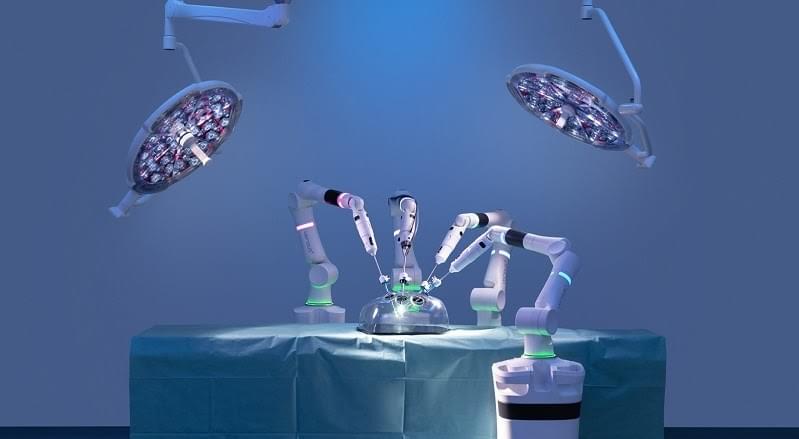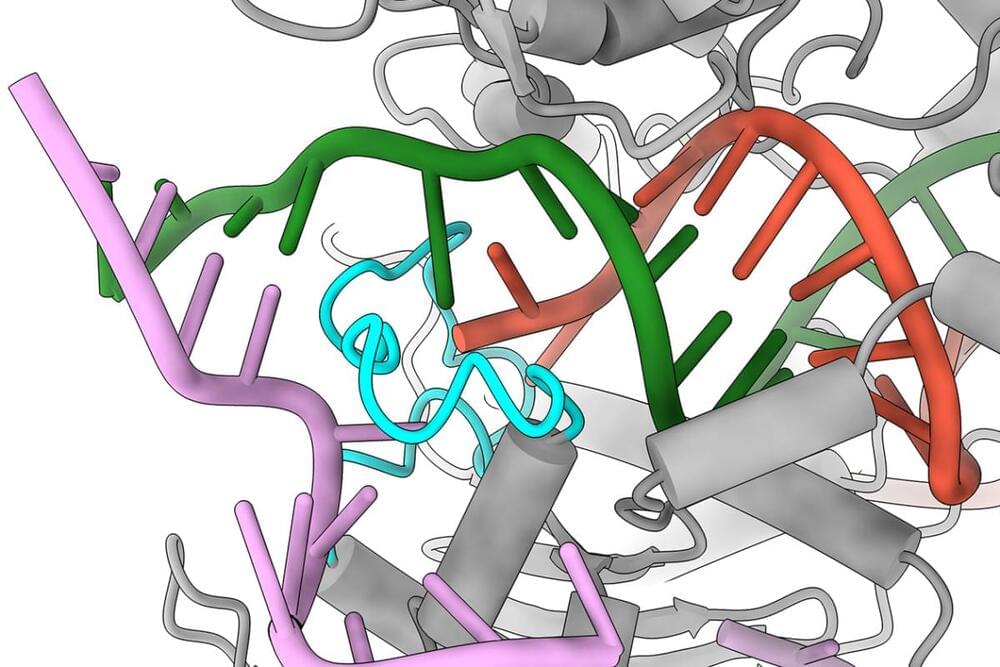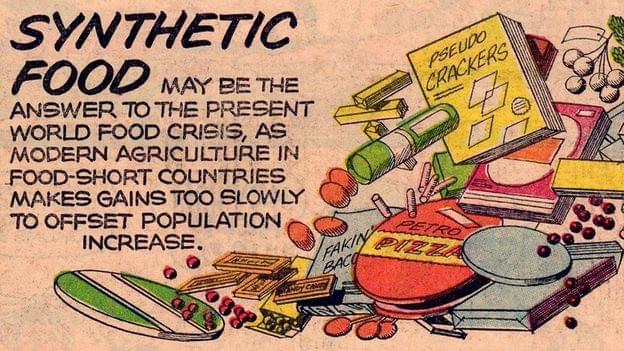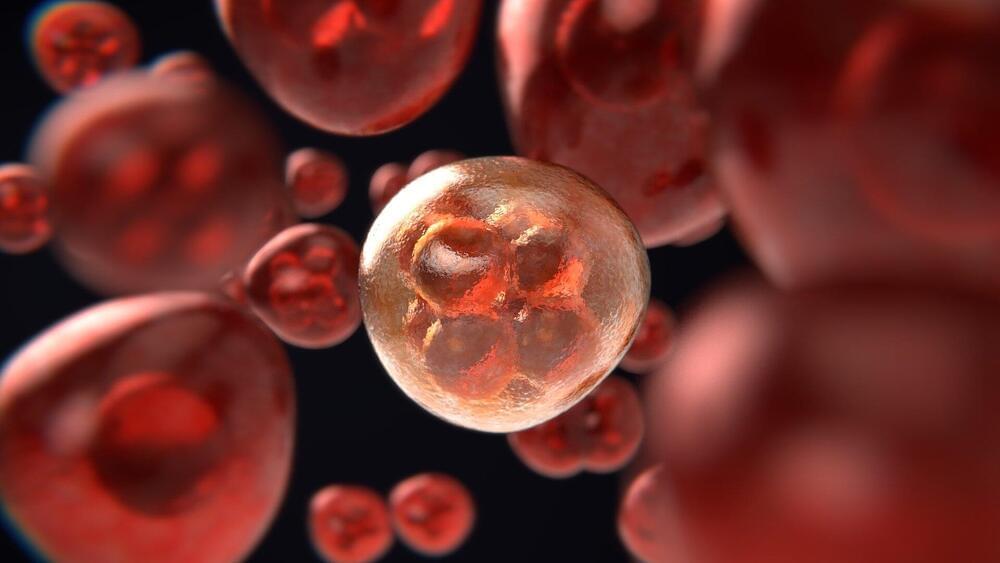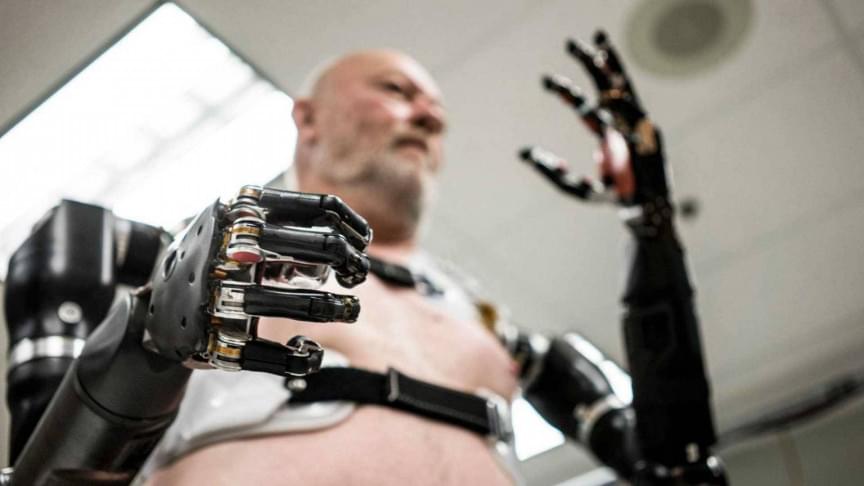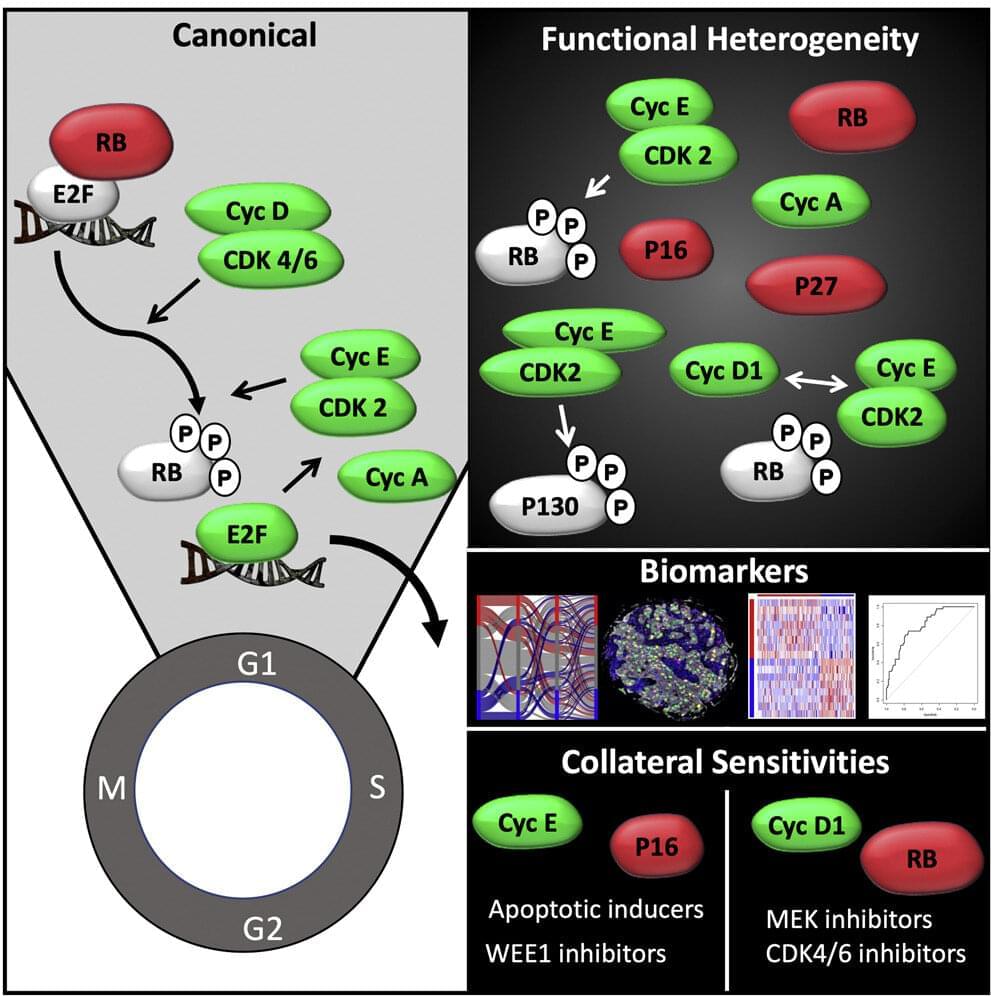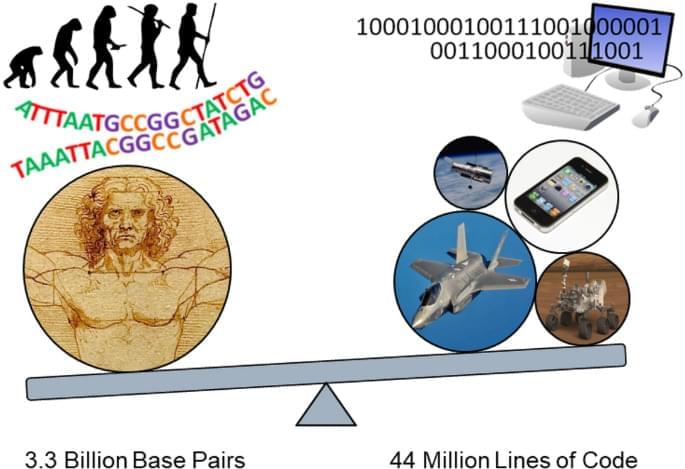Archive for the ‘biotech/medical’ category: Page 1153
Mar 4, 2022
Protein tweak makes CRISPR gene editing 4,000 times less error-prone
Posted by Shubham Ghosh Roy in categories: bioengineering, biotech/medical, genetics, health
The CRISPR gene-editing system is a powerful tool that could revolutionize medicine and other sciences, but unfortunately it has a tendency to make edits to the wrong sections of DNA. Now, researchers at the University of Texas at Austin have identified a previously unknown structure of the protein that drives these mistakes, and tweaked it to reduce the likelihood of off-target mutations by 4,000 times.
CRISPR tools use certain proteins, most often Cas9, to make precise edits to specific DNA sequences in living cells. This can involve cutting out problematic genes, such as those that cause disease, and/or slotting in beneficial ones. The problem is that sometimes the tool can make changes to the wrong parts, potentially triggering a range of other health issues.
And in the new study, the UT researchers discovered how some of these errors can happen. Usually, the Cas9 protein is hunting for a specific sequence of 20 letters in the DNA code, but if it finds one where 18 out of 20 match its target, it might make its edit anyway. To find out why this occurs, the team used cryo-electron microscopy to observe what Cas9 is doing when it interacts with a mismatched sequence.
Mar 4, 2022
Meal-in-a-pill : A staple of science fiction
Posted by Quinn Sena in categories: biotech/medical, food
Circa 2012 o.o
For decades, the idea of a future where meals were condensed into tablets was so popular that it became cliché. So why are we not eating them now?
Mar 4, 2022
Scientists discover molecule that kills pancreatic cancer cells
Posted by Genevieve Klien in category: biotech/medical
A research team led by scientists at Roswell Park Comprehensive Cancer Center has discovered a molecule that inhibits the growth and metastasis of pancreatic cancer cells through the iron metabolism pathway. Their findings, recently published in Molecular Cancer Therapeutics, pave the way toward the development of a new drug candidate for the treatment of pancreatic cancer.
The molecule, MMRi62, targets iron metabolism to kill cancer cells and the harmful proteins that encourage their growth and spread, suggesting that further development and refinement of this compound could lead to a new type of pancreatic cancer therapy.
“MMRi62 causes degradation of an iron-storage protein called FTH1, as well as a protein that is mutated in PDAC, resulting [in] inhibition of metastasis and ferroptosis, a form of cell death triggered by free cellular iron,” says Xinjiang Wang, Ph.D., Associate Professor in the Department of Pharmacology and Therapeutics at Roswell Park.
Mar 4, 2022
Tesla factory in Germany gains conditional approval to start commercial production
Posted by Genevieve Klien in categories: biotech/medical, sustainability
Tesla has gained approval to begin commercial production at its new factory near Berlin, local German officials announced Friday.
The conditional license for the vehicle and battery plants in Brandenburg was expected following months of delays. Tesla had intended to start production of vehicles by early summer of 2021 in Brandenburg, but the Covid pandemic, supply chain complications and clashes with environmentalists all slowed their pace.
The project, which was approved with the 536-page decision, includes the plant for the production of up to 500,000 vehicles per year, according to a translated release.
Mar 4, 2022
AgeX Therapeutics: Targeting Biological Ageing | Dr Michael D. West
Posted by Montie Adkins in categories: biotech/medical, law, life extension

Have not heard from Dr West in awhile. Two things stood out in this technical hour: Telomerase in gene therapy has never been properly developed, and their iTR technology has not had animal trials as they wait for funding.
In this #webinar, Dr Michael West, a bioentrepreneur and CEO of AgeX Therapeutics, discussed the work of AgeX Therapeutics, their mission and plan to extend human health and longevity, and exciting new #technologies that could combat #ageing and unlock cellular immortality.
Continue reading “AgeX Therapeutics: Targeting Biological Ageing | Dr Michael D. West” »
Mar 4, 2022
A new artificial human arm is moving prosthetics one step closer to true bionics
Posted by Gemechu Taye in categories: biotech/medical, cyborgs, transhumanism
Mar 4, 2022
Brain-computer interface firm Neuroelectrics wants to eliminate surgery
Posted by Gemechu Taye in categories: biotech/medical, computing, neuroscience
Mar 4, 2022
Targeting the cell cycle could overcome cancer treatment resistance
Posted by Nicholi Avery in categories: biotech/medical, genetics
Scientists from Roswell Park Comprehensive Cancer Center have shed light on a different way of overcoming mechanisms of resistance to specific therapeutic agents used to treat cancer. In a new article published March 1 in the journal Cell Reports, the researchers propose a new approach to cancer treatment based on the way different cancer cells divide.
A collaborative team led by Agnieszka Witkiewicz, MD, Professor of Oncology, and Erik Knudsen, Ph.D., Professor of Oncology and Chair of Molecular and Cellular Biology, from Roswell Park investigated over 500 cell lines from a multitude of cancer types, as well as preclinical tumor models. The researchers then analyzed cancer cells based on their dependency for CDK and CCN, two genes that drive the cell cycle and determine how often a cancer cell divides.
“We found that the way cancer cells divide is highly varied, and that diversity represents a tremendous challenge for some widely used cancer therapies because it often contributes to treatment resistance,” says Dr. Witkiewicz, the study’s senior author. “However, with a better understanding of these heterogenous features of cancer cell division, different therapies could be deployed in a more precise and effective fashion.”
Mar 3, 2022
Comparative analysis of genome code complexity and manufacturability with engineering benchmarks
Posted by Saúl Morales Rodriguéz in categories: bioengineering, biotech/medical, encryption
When knowledge has advanced to a state that includes a predictive understanding of the relationship between genome sequence and organism phenotype it will be possible for future engineers to design and produce synthetic organisms. However, the possibility of synthetic biology does not necessarily guarantee its feasibility, in much the same way that the possibility of a brute force attack fails to ensure the timely breaking of robust encryption. The size and range of natural genomes, from a few million base pairs for bacteria to over 100 billion base pairs for some plants, suggests it is necessary to evaluate the practical limits of designing genomes of similar complexity.
